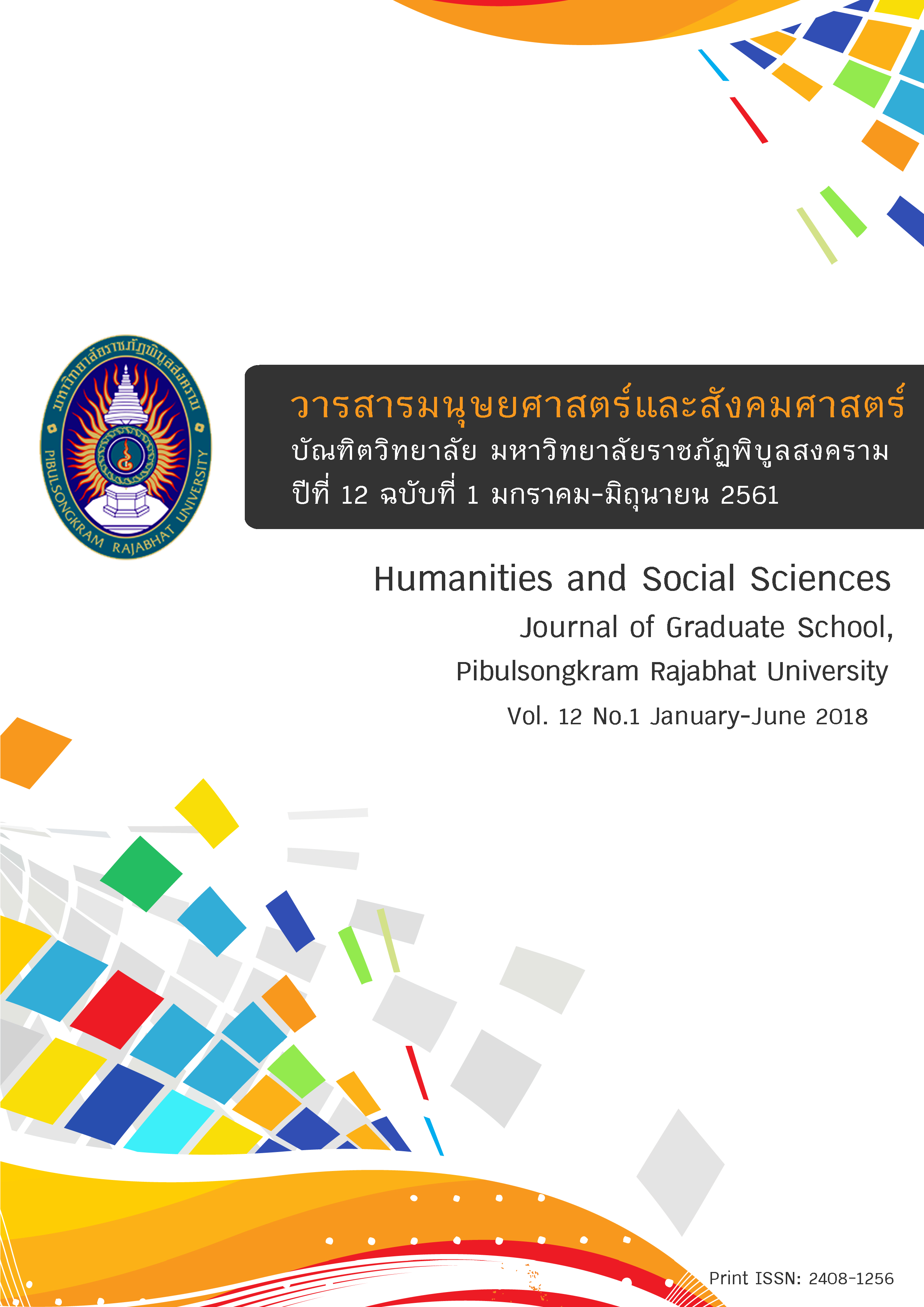The Opinions, Reasons and Arranging Activities to Promote Morality and Ethic for Students of Primary Schools in Vietnam
Keywords:
morality and ethics, students, honesty, public mind, and responsibilityAbstract
The objective of this research was to study the opinions, reasons, and activities arrangement to promote morality and ethic for students of primary schools in Vietnam. The samples are nine school directors of primary schools in Vietnam and selected by purposive sampling. The research instrument used was in-depth interview protocol. Researcher interviewed, recorded the data and analyzed the data using content analysis.
The findings of the opinions, reasons, and activities arrangement to promote morality and ethic for students of primary schools in Vietnam indicated that all the nine school administrators agreed and gave the similar reasons and activities arrangement in order to promote honesty, public mind and responsibilities as follows:
1) Honesty is an essential characteristic that each individual needs to possess. Honesty needs to develop at the early age particularly to elementary students. Therefore honesty needs to be trained since young. Honesty of the students can be extended until they become adult. As a result, they will be honest in their communication and work as well as becoming individual with good attitude. They should do some activities related to promote honesty such as telling a story or role playing about honesty and dishonesty, telling to do their homework by themselves, telling them to tell the truth to their teachers and friends, working together in a group, cleaning classrooms and schools, remembering soldiers who had died in the war and rolling historic plays.
2) Public mind needs to be developed since young. This is because a good society needs people helping each other to solve problem. Sometimes we can solve problems by ourselves; however, we sometimes need other people’s assistance. The young should do some activities related to promote public mind such as playing games, working in a small group by letting them help each other, donating money to disaster and storm victims, becoming volunteers, asking them to throw away rubbish and cleaning their school, money collecting to by tools and materials for other needy schools and books and used clothes donations for those rural and disabled children, buying a toothpick to help the blind and visiting the mothers of those soldiers in the war.
3) Responsibility is very important especially elementary school students. Teachers should teach and train the students to be responsible individuals. The young should do some activities related to promote responsibilities such teachers requiring students to be responsible to themselves, paying respect to their family, helping their parents to do some choirs ,taking care of younger siblings and a sick member in the family, assigning some tasks appropriately in relevant with each student’s ability according to their special talents such as having sports and singing, searching for historical places or arranging some activities focusing on islands and sea.
References
Lapsley, D. K. (1996). Moral psychology. Boulder, CO: Westview Press.
Lord, R. G., & Brown, D. L. (2004). Leadership processes and follower self-identity. Mahwah, NJ: Erlbaum.
The Ministry of Education. (2008). The Basic Education Core Curriculum B.E. 2551. Bangkok ; the Agricultural Co-operative Federation of Thailand”, Limited press.
Nawarin Takonthong. (2008, 19 March). Public Mind: Characteristics Desirable of children in Thailand. Retrieved on June 6, 2009., From http://ireo.bu.ac.th/moral.doc.
Panom Pongpaiboon. (2010). Education to strengthen integrity. Retrieved on June 7, 2557. from http://www.moe.go.th/main2/article/article11.html.
Pornthip Montreevongsa. (2011). The development of the public mind in the first year students with the education group to rational emotions and behavior. Master of Science (Counseling Psychology). Graduate School of Burapa University .
Ram Chitti Institute. (2007). The project of following situation of children and youth in the province (Child Watch). Report of the situation of children and youth.(2005–2006). Bangkok: thai health promotion foundation (thai health).
Somsri Tanavoottikool. (2010: 1) Strategy spiritual development of students in public schools. Basic Education. Education Doctoral Thesis (Department of Education). Graduate School Naresuan University.
Thai Development Research Institute Foundation. (2013). The Compilation Strategy of Basis Education Reform for Contribute Responsibility. Bangkok, Thai Development Research Institute Foundation.
Surat Silapatanan. (2013). Strengthening moral education in "anti-fraud".In theworkshop, the moral, ethical and good governance in schools. "Honestly school, "the education area. Fiscal 2014 between 23-25 December 2013, The Phookhowngam Hotel of Nakhon Nayok Povince.
Tuangrat Wasa. (2011). Honesty behavior of level III students in secondary schools under the secondary educational service area office 9, mueang Nakhon Pathom district, Nakhom province. (Department of Psychology and guidance). Silpakorn University, Bangkok.
Walker, L. J., & Hennig, K. H. (2004). Differing Conceptions of Moral Exemplarity: Just, Brave, and Caring. Journal of Personality and Social Psychology, 86(4), 629-647.
Downloads
Published
How to Cite
Issue
Section
License
Any articles or comments appearing in the Journal of Humanities and Social Sciences, Rajabhat Phibulsongkram University, are the intellectual property of the authors, and do not necessarily reflect the views of the editorial board. Published articles are copyrighted by the Journal of Humanities and Social Sciences, Rajabhat Phibulsongkram University.









